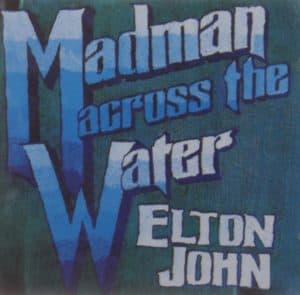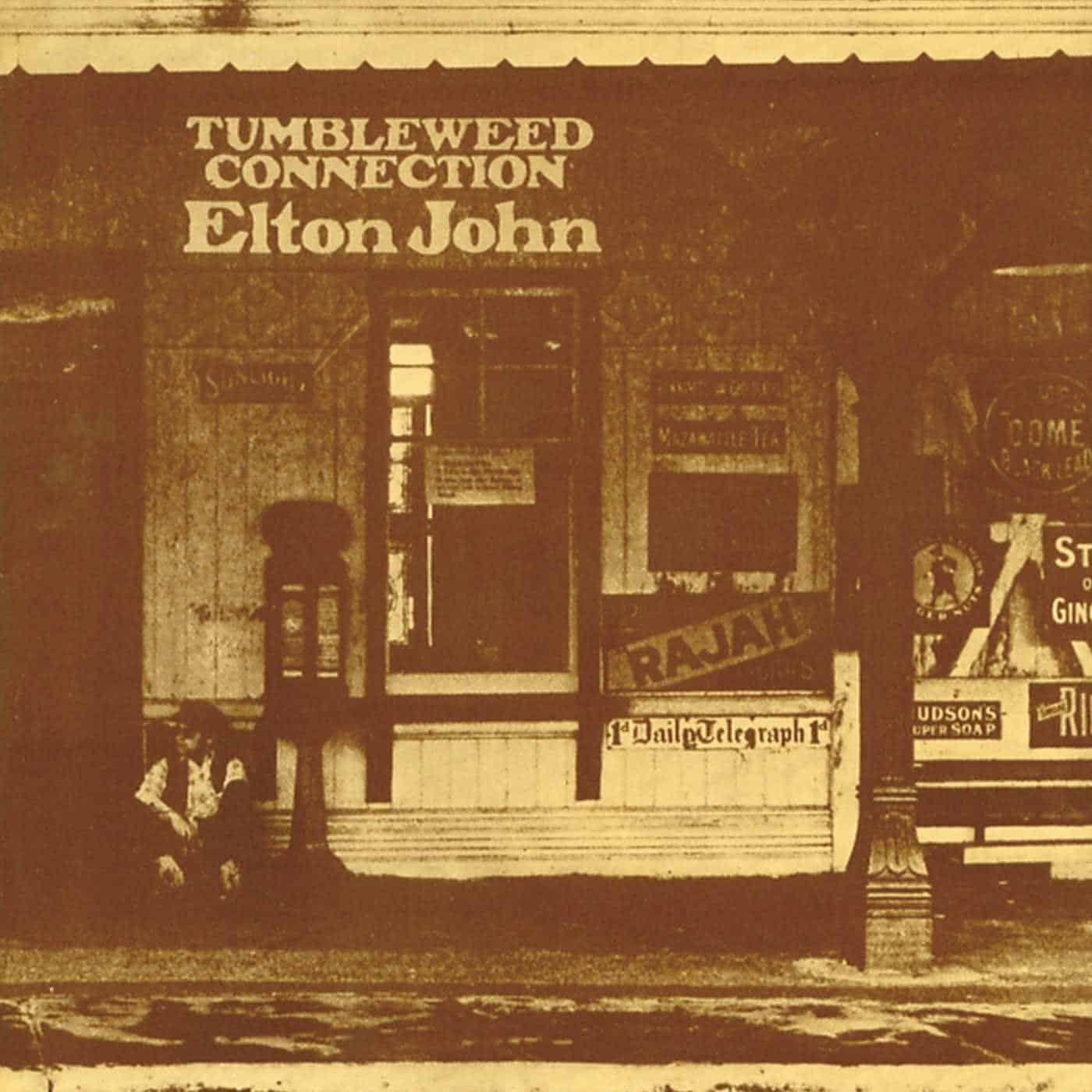Marketplace
2017 Mercury Records PRESSING
- Catalog Number 5707086
- Release Year 2017
- Vinyl Mastering Engineer Robert C. Ludwig & Sean Magee
- Pressing Weight 180g
- # of Disks 1
- Jacket Style Gatefold
There’s a fine line between serious ambition and bombast. It’s not unreasonable to accuse Elton John and lyricist Bernie Taupin of engaging in a bit of the latter on Madman Across the Water. Some of the tunes, such as “All the Nasties,” last a minute or two longer than they should. It’s also hard to justify a full backing chorus for some of the songs’ lightweight lyrical content.
That said, John’s and Taupin’s ability to capture emotion in every composition—and the passion they bring to documenting their unique American experience—proves difficult to resist. The album conveys a sense of what it must have been like for two Europeans to make their way across a country mired in turmoil and change. Full of high-wire-act storytelling, Madman Across the Water amounts to a thrilling, if occasionally precarious, performance and a prime example of rock n’ roll theater.
In many ways, the set seems like a sequel to the previous year’s Tumbleweed Connection but remains distinguished by an even heavier dose of Paul Buckmaster’s symphonic string arrangements. (A number of chamber pop and prog-rock acts have liberally borrowed from its expansive template.) In spite of the record’s lushly dense sonics, producer Gus Dudgeon allows plenty of room for John’s vocal prowess and melodic genius to shine on tracks like “Tiny Dancer.” A cadre of top-flight session musicians also paint complex, Americana-flavored backdrops for each song, completing the widescreen presentation with balanced nuance and detail. And drummers Brian Morgan, Terry Cox, and Nigel Olsson deserve considerable credit for helping to build the album’s enormous scale with hammer-of-the-gods percussion work. Just listen the title track and “Indian Sunset,” as the rumble of Cox’s drum kit threatens to move furniture if you turn up the volume high enough.
This album’s 1971 debut was marred by the less-than-stellar sound quality of its original U.K. pressing. Vocals are veiled and the overall EQ frustratingly rolled-off and wooly—exactly the opposite of what the intricate music demands. Consequently, a number of labels have tried their hands at digital and vinyl remasters. Some of the digital editions manage to improve clarity but sound bright and strident in places. Steve Hoffman’s DCC Compact Classics LP remaster from 1995 has long served as the vinyl gold standard in that it rescues the recording’s air and full dynamic range. How does the newer Bob Ludwig 2017 remaster fare?
It is a vast improvement over the flawed sonics of the original U.K. pressing. Although working in the digital domain, Ludwig cleans up the murkiness while preserving the analog warmth of the master tapes. The LP places John’s vocals more forward in the mix than Hoffman’s release, and Ludwig gives the bass frequencies more gravitas. I’m partial to Ludgwig’s visceral presentation of drums and percussion, but Hoffman’s DCC LP affords more breathing room for the string passages and choral voices. The “better” pressing will likely depend upon your individual taste and mood, but only the well-heeled will be able to afford the out-of-print DCC LP.
The 2017 reissue’s album cover is printed on denim-textured paper and contains a beautiful reproduction of the original 10-page libretto replete with indigo-blue toned photos and illustrations. Sadly, my copy is plagued with several horrific pops and loud surface noises throughout side one, detractions that ruin an otherwise satisfying remaster.
Madman Across the Water


 4
4

